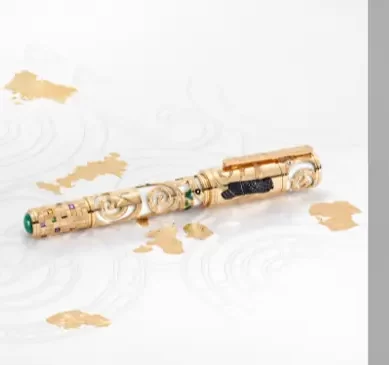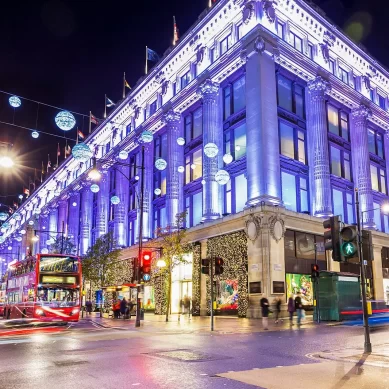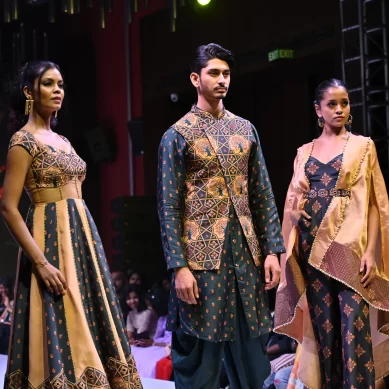A Look at India’s Role in Shaping the Future of Fashion, By label Asha Gautam & Brand GG
Sustainable Style Takes Centre Stage: India’s Rise in Shaping the Future of Fashion
The world is witnessing a remarkable shift in the fashion industry, with sustainable fashion taking centre stage. As consumers become more conscious of the environmental and social impacts of their clothing choices, brands and countries are actively seeking ways to adopt more responsible practices. In this exciting transformation, India is emerging as a frontrunner, leveraging its rich textile heritage, skilled artisans, and innovative approaches to shape the future of sustainable fashion. And Asha Gautam, the founder of labels GG and Asha Gautam, is advancing this initiative.
A Return to Handmade Craftsmanship:
Handmade fashion is experiencing a well-deserved resurgence in 2024. Whether it’s handwoven textiles or intricate hand-embroidered designs, this approach not only minimises energy consumption but also empowers a larger pool of artisans. India, with its long history of craftsmanship, is perfectly positioned to become a global leader in supplying handmade fashion. This craftsmanship is being progressed by Asha Gautam. This not only fosters cultural preservation but also contributes significantly to reducing the industry’s environmental footprint.
Embracing Natural Dyes and Alternative Materials:
A renewed interest in natural and alternative dyes is sweeping the fashion scene. These dyes, derived from plants, minerals, and insects, offer a more eco-friendly alternative to chemical-based options, often yielding unique and vibrant colours with added depth and character. Additionally, the focus is shifting towards innovative materials like bamboo, banana fibre, and even coffee beans, offering sustainable and versatile options for fashion designers.
The Power of Recycling, Upcycling, and Reselling:
The principles of recycling, upcycling, and reselling are gaining significant traction in the realm of responsible fashion. Brands are increasingly incorporating recycled materials into their collections, while consumers are embracing pre-owned clothing, dismantling the stigma previously associated with such practices. This shift towards a circular fashion economy signifies a move away from a culture of fast fashion and towards a more mindful approach to consumption. And this power in the designing could be seen in the collection ‘Khwaab‘ created by Asha Gautam in collaboration with the Brave Souls Foundation.

Asha Gautam presents Khwaab in association with Brave Souls foundation
Technology: A Catalyst for Change
Technology is playing a crucial role in driving innovation and fostering collaboration within the fashion industry. Advancements in artificial intelligence, e-commerce platforms, and social media marketing are streamlining processes and creating new avenues for designers and consumers to connect. This digital transformation is facilitating the rise of new startups and fostering a more globally connected fashion ecosystem.
Empowering Women and Embracing Inclusivity:
The fashion industry is recognising the importance of gender equality and inclusivity. Social initiatives aimed at training and empowering women in various craft-related activities are not only providing employment opportunities but also contributing to the preservation of India’s rich heritage of craftsmanship. Additionally, the fashion scene is embracing diverse communities, challenging societal norms, and promoting progressive attitudes, ultimately shaping a more inclusive and equitable industry.

India’s Sustainable Fashion Future:
Asha Gautam says that as the fashion industry continues to evolve, India is well-positioned to be a leader in the sustainable fashion movement. By harnessing its unique strengths, embracing innovation, and promoting ethical practices, India can not only set a global example but also empower local communities, preserve cultural traditions, and build a more responsible and sustainable future for fashion. The year 2024 promises to be a pivotal year for the industry, and India’s commitment to sustainable practices is sure to leave a lasting impact on the global fashion landscape.
Conclusion:
A growing awareness of the social and environmental effects of clothing production is driving a significant transformation in the fashion industry. In 2024, India is poised to play a leading role in this shift towards sustainability, with its rich textile heritage, skilled artisans, and innovative approaches. From embracing handmade fashion and natural dyes to utilising recycled materials and promoting inclusivity, the Indian fashion scene is demonstrating a commitment to a more responsible and ethical future. As consumers become increasingly conscious of their choices, India’s sustainable fashion movement has the potential to not only set a global example but also empower local communities and preserve cultural traditions. By harnessing its unique strengths and fostering collaboration across the industry, India can pave the way for a more sustainable and equitable fashion landscape for years to come.



































